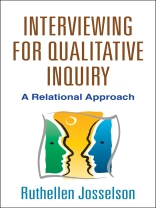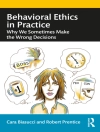Engagingly written, this book builds the reader’s skills for conducting in-depth interviews designed to address a particular research question. With an emphasis on the dynamics of the research relationship, Ruthellen Josselson artfully demonstrates the steps of a successful interview. Each step is illustrated with excerpts from interviews on diverse topics. The book describes how to structure interviews effectively, develop questions that elicit meaningful narratives, cultivate skills for empathic listening and responding, avoid common pitfalls, and deal with problems that develop in an interview.
Pedagogical Features
*Practice exercises adapted from Josselson’s popular workshops.
*Annotated examples of ‘good’ and ‘bad’ interviews.
*A chapter on interviewing dos and don’ts.
*Appendices with interview aids, sample follow-up questions, and a sample consent form.
Jadual kandungan
1.The Foundations of Interviewing as Qualitative Inquiry
2. Introduction to the Research Relationship
3. Planning the Interview
4. Beginning the Interview
5. The Empathic Attitude of Listening
6. The Research Relationship, Part II: Ethics and Humanity
7. The Good Interview
8. Learning from Bad and Difficult Interviews
9. Dos and Don’ts of Interviewing
10. After the Interview
11. Conclusion
Appendix A. Interview Aids
Appendix B. Sample Additional Questions
Appendix C. Sample Informed Consent Form
Mengenai Pengarang
Ruthellen Josselson, Ph D, is Professor of Clinical Psychology at Fielding Graduate University. She is a recipient of the American Psychological Association’s Henry A. Murray Award and Theodore R. Sarbin Award, and is a cofounder of the Society for Qualitative Inquiry. In her numerous publications, she has explored the theory and practice of qualitative inquiry. Many of her books and articles are based on interviews. She has conducted workshops on interviewing skills for qualitative inquiry in the United States, France, Norway, Finland, Israel, and the United Kingdom.












